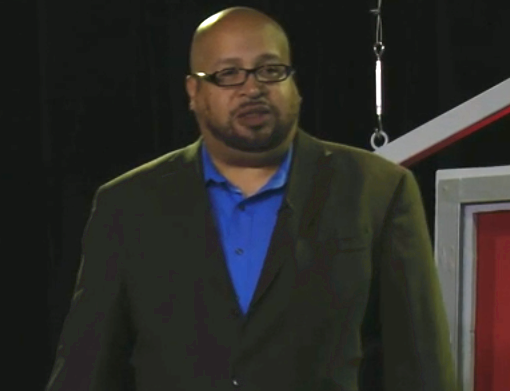It's, in short, how we learn what we know about other people and about the world.
簡而言之,那就是我們如何了解到,我們對于其他人的認知,以及我們對于全世界的認知。
But we live in a 100-percent media-saturated society.
但是我們生活在一個媒體無處不在的社會中。
What that means is that every single aspect of your human existence
也就是說,人類在基本生理機能之外的
outside of your basic bodily functions is in some way touched by media.
每一個方面,都多多少少與媒體有關聯。
From the car that you drive to the food that you eat to the clothes that you wear
從你開的車,吃的食物,到你穿的衣服,
to the way you construct your relationships
到你建立人際關系的方式,
to the very language you use to formulate thought -- all of that is in some way mediated.
到你表達思路時所使用的特有的語法--所有這些都以某種方式被媒體化了。

So the answer in our society
所以,在我們的社會中,
to how do we learn what we know about other people and about the world is largely through media.
關于如何了解自己對于其他人和世界的認知,答案就是很大程度上是通過媒體的。
Well, there's a wrinkle in that, in that our society,
然而,有一個在媒體中存在,在社會中也同樣存在的小問題,
media don't simply exist as information distribution technologies and devices.
媒體并不單單作為信息發布的技術和設備而存在,
They also exist as corporate entities.
它們也作為企業的實體而存在。
And when the distribution of information is tied to financial gain, there's a problem.
并且,當信息的發布與商業利益掛鉤時就出現了問題。
How big of a problem? Well think about this:
多么嚴重的問題呢?試想一下:
in 1983, 90 percent of American media were owned by 50 companies.
在1983年,五十家公司掌控著全美國百分之九十的媒體。
In any market, 50 companies doing something is a lot of companies. It's a lot of different worldviews.
在任何市場領域,五十家公司共營意味著很多個公司。意味著許多不同的世界觀。
In 2015, that number has shrunk to six, six companies.
在2015年,公司的數目銳減到了六個,六家公司。
They are NBCUniversal Comcast, AOL Time Warner, the Walt Disney Company, News Corp, Viacom and the CBS Corporation.
它們是NBC環球集團,AOL時代華納公司,迪士尼公司,新聞集團,維亞康姆以及CBS公司。











